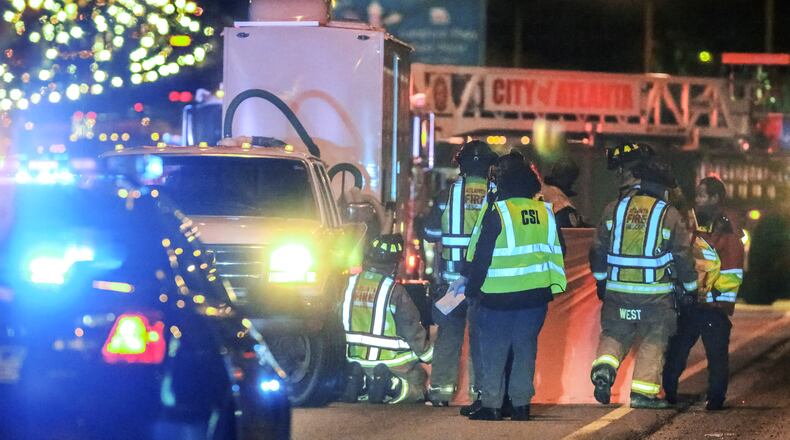They have extensive training on how to handle a variety of medical emergencies. But every single case is different for those responsible for transporting patients to hospitals.
Early Monday, a man being taken to Grady Memorial Hospital for treatment decided he no longer wanted to be in an ambulance, according to Atlanta police. Instead, Andrew Hill jumped out of the back of an ambulance and ran across the Downtown Connector, where he was struck by two vehicles and killed.
No information was released on why Hill, believed to be 22 or 23 years old, was being taken to the hospital. Late Monday, investigators had not determined what prompted him to break free from restraints and run. For emergency medical technicians, called EMTs, or paramedics, the mental state of a patient determines the treatment administered.
“When you have a patient trying to get off a stretcher or out of an ambulance, it’s a very dangerous situation for the paramedic,” Kim Littleton, executive director for the Georgia Association of Emergency Medical Services, said Monday. “As a medic, we can’t be of any benefit to a patient if we’re endangered.”
Patients could be under the influence of drugs or alcohol or even prescribed medications that might alter their state of mind. And that information may or may not be given to a 911 operator, who then communicates with EMTs, Littleton said. Those with mental issues may be restrained depending on their mental capacity, she said.
“You have to take all of the precautions, Littleton said. “You really have to be prepared to deal with any situation.”
Georgia's Department of Public Health has 209 pages of guidelines online for pre-hospital protocols for EMTs. Among those is the right of adult patients to refuse medical care, as long as they are of the mental and medical capacity to do so.
“An assessment must be offered and performed, to the extent permitted, on all patients,” the DPH guide states. “For patients initially refusing care, attempt to ask them, ‘Would you allow us to check you out and evaluate whether you are OK?’”
Patients with serious complaints, such as chest pains or difficulty breathing, would likely still be taken for treatment because of their possibly life-threatening state, according to the DPH.
In Hill’s case, no details were released on whether he consented to be loaded into the ambulance. But while on the Downtown Connector, Hill made the decision to cut his trip short, Atlanta police said.
“The victim was being transported to Grady hospital for evaluation when he began to get agitated and removed the restraints before attempting to exit the ambulance,” Atlanta police Officer Kim Jones said. “When the ambulance stopped, the victim got out of the vehicle and proceeded to run across five lanes of traffic on the interstate.”
Hill made it across the roadway, Jones said. However, he ran back into traffic and was hit by a Honda Accord. A pickup truck then hit and pinned the man, killing him about 4:45 a.m. The wreck shut down the northbound lanes of the Connector near University Avenue for about two hours during the morning commute.
Investigators with the Fulton County Medical Examiner’s Office were given two different birthdays for Hill, a spokesman said. It was not yet known where Hill lived.
The incident remained under investigation Monday evening.
About the Author
The Latest
Featured

